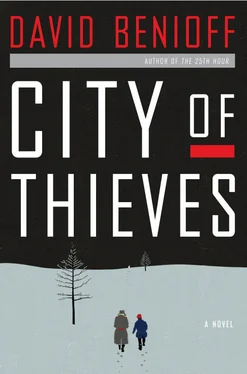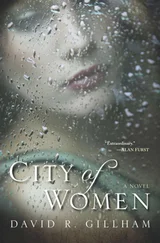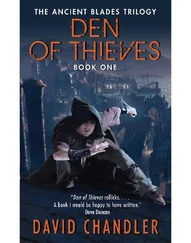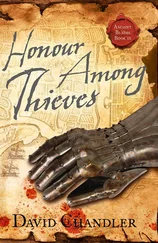Sometimes, when enough bottles of wine had been drained, a poet would stand, swaying slightly as if a strong wind were blowing, and recite a new poem he had written. As an eight-year-old peering into the living room from the hallway, knowing I’d be caught soon and hoping it would be my father to catch me (he was almost impossible to anger, while my mother was quick with a hard hand to the backside), the poems meant nothing to me. Most of the poets wanted to be Mayakovsky, and while they couldn’t match his talent they could mimic his opacity, shouting out verses that made no sense to me at eight and probably made just as little sense to everyone else in the room. But even if the poems didn’t impress me, the performances did—these huge men with their shaggy eyebrows, always holding cigarettes between their fingers, the long stems of ash breaking and drifting toward the floor whenever they gestured too wildly. On rare occasions a woman would rise and face the staring eyes—once even Akhmatova herself, according to my mother, though I don’t remember seeing her.
Sometimes the poets read from scribbled notes, sometimes they spoke from memory. When they were finished, too conscious of all the faces watching them, they reached for the nearest glass of wine or vodka—not only for the drink’s support, but to give themselves something to do, a simple action to occupy the hands and eyes while waiting for the crowd’s reaction. This was an audience of fellow professionals, competitors, and the usual response was modest approval, signaled by nodding heads, smiles, slaps on the back. Once or twice I saw these jaundiced men of letters erupt with euphoria, so moved by the power of the work that they forgot their jealousy as they shouted out, “Bravo! Bravo!” and charged at the dazed, happy poet, kissing his cheeks with sloppy wet lips, mussing his hair, repeating their favorite lines, and shaking their heads with admiration.
Far more common, though, was the reaction of disdainful silence, nobody willing to meet the poet’s eye, to feign interest in the subject matter, or halfheartedly compliment the use of a jaunty metaphor. When a reading failed, the poet knew it quickly. He would down his glass of alcohol, the red flush of shame spreading across his face as he wiped his mouth dry with his sleeve and shuffled off to the far side of the apartment, taking great interest in the books on my father’s bookshelves—Balzac and Stendhal, Yeats and Baudelaire. The defeated man would leave the party soon, but leaving too quickly would seem like bad sportsmanship, a sulking form of cowardice, so he would wait an agonizing twenty minutes while everyone around him studiously avoided mentioning his poem, as if it were a brutal fart that no one was rude enough to acknowledge. Finally he would thank my mother for her food and hospitality, smiling but not looking her in the eye, and hustle out the door, knowing that the minute he left everyone would joke about the atrocity he’d unveiled, what a horror, what a lumpy sack of pretension and artifice.
Kolya protected himself by inventing Ushakovo. The make-believe writer gave cover so that Kolya could test his opening line, his protagonist’s philosophy, even the title of the book, gauging my reaction without fear of derision. As scams go it wasn’t the most elaborate one, but he had pulled it off nicely, and I decided that Kolya could probably write a decent novel someday, if he survived the war and ditched the bombastic first sentence.
The talk with Kolya and the encounter with Vika had jolted me awake again and I peered around the forest, hoping the men in front of me and behind me had better eyes for the darkness than I did. The moon had drifted below the tree line; the sun would not rise for hours; the night was truly black now. Twice I nearly walked into trees. The stars were out in their millions, but they were only for decoration, and I wondered why those distant suns appeared as pinpricks of light. If the astronomers were right and the universe is clogged with stars, many of them far larger than our sun, and if light traveled forever without slowing or fading, why didn’t the sky shine every minute of the day? The answer must have been obvious, but I couldn’t figure it out. For thirty minutes I didn’t worry about the Einsaztkommandos and their leader Abendroth; I forgot about the muscles cramping in my legs; I didn’t notice the cold. Were stars like flashlights, unable to project past a certain distance? From the rooftop of the Kirov I could spot a soldier’s glowing flashlight from a few kilometers away, even though the beam could not illuminate my face from that distance. But then again, why did a flashlight’s beam lose power over distance? Did the light particles spread out like pellets in a shotgun blast? Was light even made of particles?
My semilucid wonderings finally ended when I collided with Kolya’s back, banging my nose and crying out in surprise. A dozen voices shushed me. Squinting at the dim shapes in front of me, I saw that everyone had gathered beside a massive, snow-crusted boulder. Vika was already on top of the rock; I don’t know how she managed to clamber up its slick, frozen sides in the dark.
“They’re burning the villages,” she called down to Korsakov.
The moment she spoke the words I smelled smoke in the air.
“They found the bodies,” said Korsakov.
The Germans had made their philosophy of retribution very clear to the civilians in occupied territory. They nailed posters to the walls; they issued proclamations in their Russian-language radio broadcasts; they spread the word through their collaborators: kill one of our soldiers and we’ll kill thirty Russians. Tracking down partisans was difficult work, but rounding up large numbers of old men, women, and children was easy, even now with half the nation on the run.
If Korsakov and his men were bothered by the knowledge that their raid earlier in the night had triggered a slaughter of innocents, I heard no indication in their whispered exchanges. The enemy had declared total war when they invaded our country. They had vowed, repeatedly and in print, to incinerate our cities and enslave the populace. We could not fight them in moderation. We could not fight total war with half war. The partisans would continue picking off Nazis; the Nazis would continue massacring noncombatants; and eventually the Fascists would learn that they could not win the war even if they killed thirty civilians for every one of their dead soldiers. The arithmetic was brutal, but brutal arithmetic always worked in Russia’s favor.
Vika scrambled down from the boulder. Korsakov walked over to confer with her. As he passed us he muttered to Kolya, “So much for Novoye Koshkino.”
“We’re not going?”
“Why would we? The whole point was to get there before sunrise and hunt for Einsatz. You smell that smoke? The Einsatz are hunting us.”
The partisans kept a safe house a few kilometers inland from Lake Ladoga, a long-deserted trapper’s cabin on a hillside dense with fir trees. We finally got there an hour before dawn, the sky shifting patiently from black to gray, a light snow falling as the air brightened. Everyone seemed to think the snow was a good omen, covering our tracks and signaling a warmer day.
On the way to the cabin we had walked along a ridgeline overlooking another burning village. The fire was silent, the little houses collapsing into the flames without complaint, flocks of sparks rising to the sky. At a distance it seemed beautiful, and I thought it was strange that powerful violence is often so pleasing to the eye, like tracer bullets at night. As we passed the village we heard a burst of gunfire, no more than a kilometer away, seven or eight machine guns firing in concert. We all knew what the shots signified and we all kept walking.
Читать дальше












